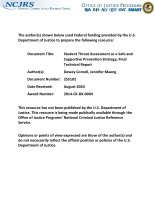Three-Dimensional Microfabricated Broadband Patch Antenna for WiGig Applications
Journal
IEEE Antennas and Wireless Propagation Letters
Date Published
2014
Agencies
NIJ-Sponsored
Publication Type
Research (Applied/Empirical)


